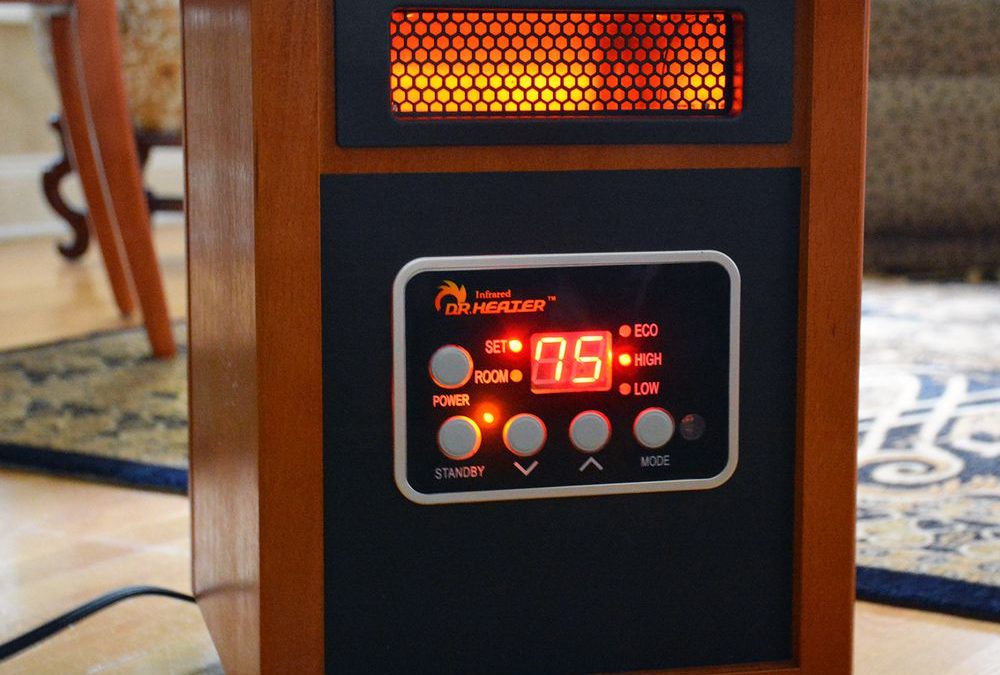Space heaters can provide extra warmth in a drafty room or chilly home office. But they can also pose a safety risk—no matter where you use them. Portable space heaters are responsible for 1,700 house fires a year, on average, according to the Consumer Product Safety Commission. Fires started by portable space heaters result in about 80 deaths annually.
If you rely on a portable heater for supplemental heat, it’s important to make space heater safety a priority. Following are tips for safe space-heater operation, along with safety features to look for when choosing a space heater. In our space heater ratings, we evaluate space heater on several safety measures including whether it gets hot enough to ignite nearby materials, whether the surface gets so hot it can cause a burn and whether or not it has a tip over switch that turns the heater off when it is knocked over.
Be Sure You’re Using Your Space Heater Safely
Half of all home heating fires happen during the months of December, January, and February—they’re mostly caused when a heater (typically an electric one) is placed too close to curtains, bedding, or upholstered furniture. Our experts, as well as the pros at the Association of Home Appliance Manufacturers and the National Fire Protection Agency offer the following safety tips.
Place the heater on a hard, level, and nonflammable surface. These appliances are intended to sit on the floor, not on a table. Establish a 3-foot kid- and pet-free zone around the heater, and never put a space heater in a child’s room. Keep the space heater at least 3 feet away from combustible materials, such as furniture, bedding, and curtains. A taller heater may need to be even further away.
Don’t use a heater in a workshop or garage near paint, gas cans, or matches. Turn it off when you leave the room or go to bed. Unplug the heater when it’s not in use by pulling the plug straight from the outlet. Check the cord for damage periodically, and don’t use the heater if the cord is frayed or worn. Don’t plug another electrical device or an extension cord into the same outlet as a heater—that can cause overheating. Install working smoke alarms on every level of your home and in every bedroom and test them monthly.
Safety
Safety is critical for each space heater. Each model undergoes a series of three tests to determine its potential for causing a fire. Results of those three tests—tip-over, overheat, and drape—are combined for our overall fire safety score.
For the tip-over test, a unit gets a perfect score if it turns off less than 10 seconds after being tilted on its face (many shut off instantly). For the overheat test, the heater is wrapped in fabric, causing heat to build up in the unit. Models that shut off in under 2 minutes without scorching the fabric earn a perfect score. In the drape test, a portion of the heater’s outlet is covered with cloth. Models that shut off in 2 minutes, or run for 30 minutes without scorching the fabric, gain a perfect score in that test.
Although some heaters rate better than others in our fire safety tests, it has been several years since a space heater failed it completely. In 2012, we identified the Optimus H-5210 as a safety risk after it ignited the terry cloth we use. The heater was later recalled by CPSC. We don’t recommend buying a space heater that gets a rating of Poor in our fire safety test, but no space heater should ever be left unattended.
A second safety-related test is our hot-surface score, which focuses on how likely the unit is to cause accidental burns based on the temperature and location of hot surfaces. Models that earn a Poor rating in our hot-surface test can get hot enough on the highest setting to cause burns. Heaters with a rating of Very Good or Excellent in that test stay cool enough to touch safely.
Space Heater Safety Features
Certification: Make sure the heater you buy carries a safety certification label from an independent testing organization, such as the UL mark, the ETL label from Intertek, or certification from CSA International.
Shutoff features: A smart sensor that automatically shuts off a heater when it overheats is a must. You’ll also want a tip-over switch that does the same if the heater is knocked over.
A ground-fault circuit interrupter (GFCI) plug: Most space heaters don’t come equipped with a GFCI plug, which prevents electric shock. Heaters without one should not be used around water, manufacturers advise.
A sturdy cord: Most space heaters come with a cord that’s 6 feet long. To prevent overheating, never use an extension cord or a power strip with an electric heater.
Contact us
If you have an upcoming HVAC project, join hands with a licensed and insured contractor at East Coast Mechanical. Email: ecmcecmc@aol.com Address: 5133 W Hurley Pond Rd Suite A, Wall Township, NJ 07727 Hours: Monday to Friday 8 AM to 5 PM and Closed Saturday and Sunday.

